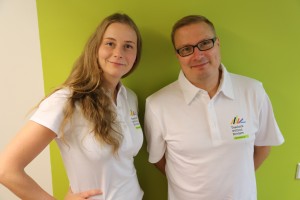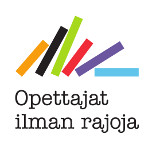Teachers studying their own work
A new semester kicked off at our workplace, the Asmara Community College of Education, in February. That also marked the start of a course we had been involved in organising called Introduction to Action Research, which is a course aimed at second year classroom teacher students. The course is meant to provide students with tools for studying their own work, and expand their own thinking about the teaching profession while strengthening their teaching identity.
The idea that teachers are the best researchers and experts of their own work has been a rather prominent pedagogic view in Finland for quite some time. This is not self-evident; in many countries teaching is being developed by ministries or government agencies. The expertise of teachers is getting increasingly valued also here in Eritrea, and this is the third time the Introduction to Action Research course is being organised at the teachers training institute we are working at.
Action Research is not a single research method, but a way of doing research that allows for the use of multiple different methods. It’s a great way of approaching the particular problems and challenges encountered in teaching. The idea is to formulate a research question linked to a problem encountered in the daily professional life, and attempt to find a solution to that problem through research. This solution can be improved upon later based on experiences at work.
The course spans the entire semester, in other words until the end of June. That means that enough time is reserved for immersing in the subject. This is good, because many students have never done research before, and everything in the course is new and interesting to them. The benefits of cooperation are emphasised in the course and participants plan out research projects in small groups.
This year, course participants are second year teacher students and the course is mandatory for everyone. There are three groups in the course which means there are quite a few participants. The largest group has nearly fifty students. Getting to know each student takes time and resources.
During the course participants are introduced to the different methods available for research and what are the best ways for teachers to make research a natural part of their everyday work routines. Action Research is used to find solutions to the problems that arise in normal day-to-day work. Potential research topics brought up by our colleague teacher trainers include: why pupils are late for classes, how to support pupils in difficult subjects like physics and why some pupils don’t do their homework.
It’s positive that the question of how teachers could evolve in their work by studying it themselves is being raised here in Eritrea too. Everyday problems can be solved with Action Research and the research projects don’t have to be enormous in scale or long-lasting. Short and intensive studies can also have a clear impact. We are awaiting with great enthusiasm to see what kind of research projects the Action Research course members come up with.

Katri Meriläinen and Jukka Tulivuori are working as Teachers without Borders volunteers in Eritrea.
